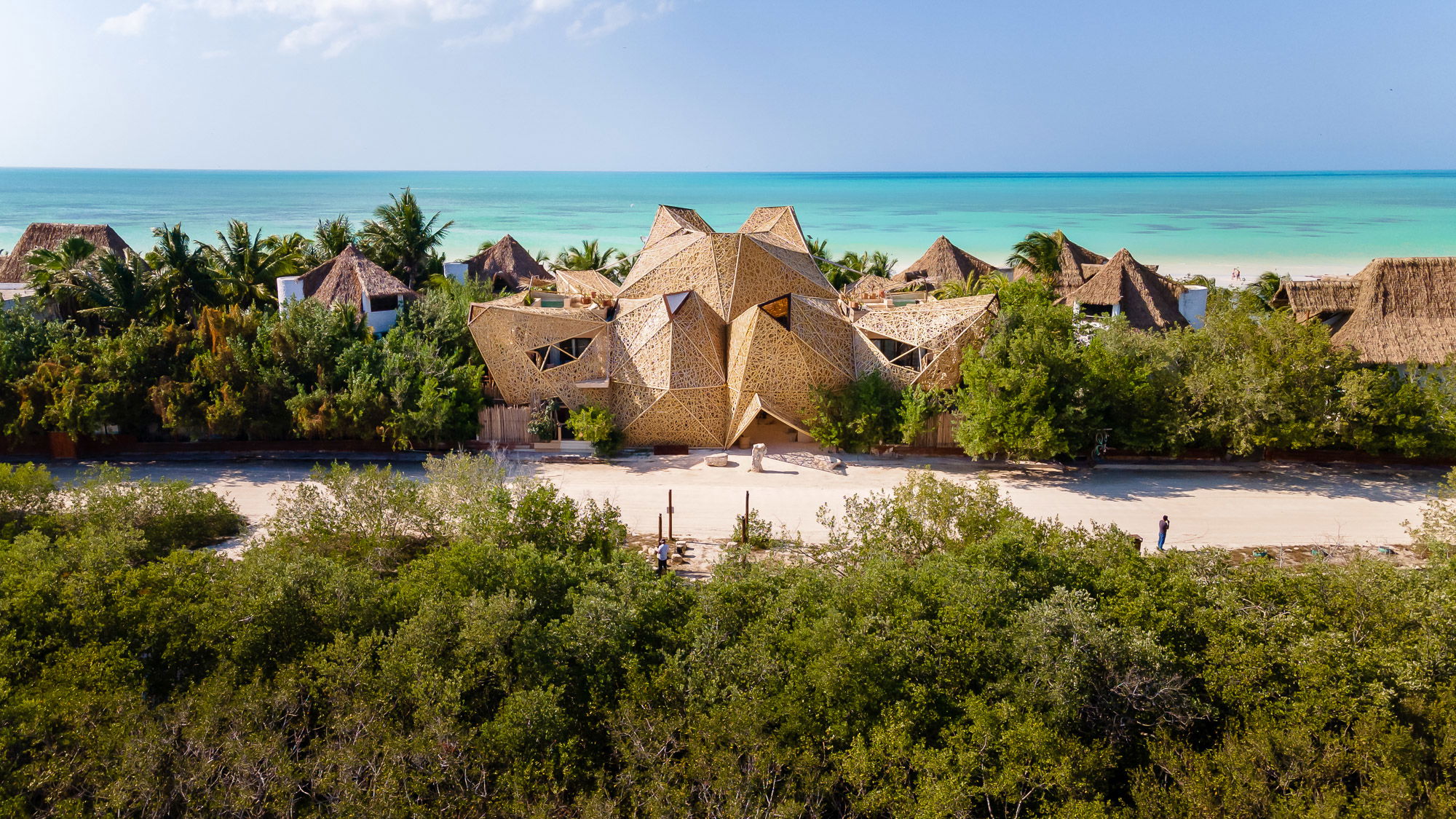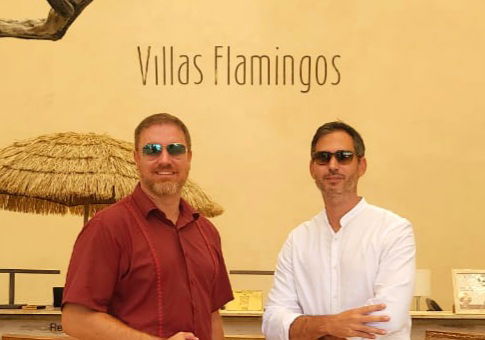What truly is a regenerative hotel?
After nearly 25 years helping hotels and retreats to grow internationally and alligning them towards a greener and socially more responsible tourism, I have witnessed firsthand the profound transformation that is taking place. The concept of regenerative hotels and retreats is not a trend; it represents a the answer of numerous hotels, new generations and global demand to shift in how we think about travel, tourism, and our relationship with the environment.
In this article, I aim to elucidate what constitutes a regenerative hotel or retreat, highlighting its core principles, benefits, and the significant positive impacts on local economies and ecosystems.
Where we are: active impact
The hospitality industry is at a critical juncture. Traditional models of tourism have often led to over-tourism, environmental degradation, and cultural erosion. In response, a growing number of hotels and retreats are embracing the principles of regenerative tourism—a holistic approach that seeks not only to minimize harm but to actively improve the environment and communities they inhabit.
Regenerative hotels and retreats go beyond sustainability, aiming to restore, rejuvenate, and enhance the ecosystems and societies around them.

Defining Regenerative Hospitality
At its essence, a regenerative hotel or retreat is one that seeks to leave a place better than it was found. This concept encompasses several key elements:
- Environmental Stewardship: Regenerative hotels prioritize the restoration and enhancement of natural habitats. This includes initiatives such as reforestation, wetland restoration, and the preservation of local wildlife. As noted by James Thornton, CEO of Intrepid Travel, "Regenerative tourism is about leaving a place better than you found it, creating lasting benefits for both the environment and local communities."
- Community Engagement: These establishments actively collaborate with local communities to ensure that tourism benefits residents economically, socially, and culturally. This might involve sourcing supplies locally, hiring local staff, and supporting local businesses and artisans.
- Cultural Preservation: Regenerative hotels respect and celebrate local cultures, traditions, and histories. They provide guests with authentic cultural experiences that foster a deeper understanding and appreciation of the destination.
- Holistic Well-being: Recognizing the interconnection between environmental health and human well-being, these retreats offer programs that promote physical, mental, and spiritual health. This could include farm-to-table dining, wellness programs, and nature-based activities.
Statistical Insights on Regenerative Tourism
Regenerative tourism is gaining significant traction globally, and the statistics illustrate the growing awareness and commitment to this transformative approach.
According to a 2021 report by Booking.com, 61% state that the pandemic has made them want to travel more sustainably in the future. Additionally, the REGENERA association analysis report that regenerative tourism could increase local economic benefits by up to 30% compared to conventional tourism models.
A study conducted by the Adventure Travel Trade Association (ATTA) found that travelers who engage in regenerative tourism activities spend, on average, 20% more than those engaged in traditional tourism. This increased expenditure directly benefits local economies, as regenerative tourists are more likely to purchase locally made products and services. Moreover, regenerative tourism can lead to a 40% reduction in environmental impact compared to traditional tourism, according to a study by the Center for Responsible Travel (CREST).
These statistics underscore the profound potential of regenerative tourism to drive positive change, not only for the environment but also for local communities and economies.

Positive Impacts on Local Economies and Destinations
Regenerative tourism holds immense potential for revitalizing local economies and fostering sustainable development. According to a report by the World Travel & Tourism Council (WTTC), tourism accounts for 10.4% of global GDP and supports one in ten jobs worldwide.
By focusing on regeneration, we can amplify these benefits:
- Economic Empowerment: By sourcing goods and services locally, regenerative hotels contribute to the economic empowerment of communities. This creates jobs, supports local businesses, and stimulates economic growth. For example, the regenerative hotel Fogo Island Inn in Newfoundland, Canada, sources 80% of its supplies from the local community, significantly boosting the local economy.
- Capacity Building and Skills Development: Regenerative hotels often invest in training and capacity-building programs for local residents. This not only improves the quality of service but also equips individuals with valuable skills that enhance their employability and economic prospects.
- Cultural Preservation and Promotion: By integrating local culture into the guest experience, regenerative hotels help preserve and promote cultural heritage. This can include supporting traditional crafts, cuisine, and storytelling, thereby enriching the cultural fabric of the community.
- Environmental Restoration and Conservation: The environmental initiatives undertaken by regenerative hotels—such as reforestation, water conservation, and renewable energy use—contribute to the restoration and conservation of natural habitats. This, in turn, enhances biodiversity and ecosystem resilience.

Hotel Foto Island Inn, Canada
Managing a Regenerative Supply Chain
A key aspect of regenerative hospitality is the meticulous management of the supply chain to ensure it aligns with regenerative principles.
This involves several strategies:
- Local Sourcing: Prioritizing local suppliers reduces the carbon footprint associated with transportation and supports local economies. It also ensures that the benefits of tourism are more evenly distributed within the community.
- Sustainable and Ethical Procurement: Regenerative hotels carefully select suppliers who adhere to sustainable and ethical practices. This includes sourcing organic and fair-trade products, reducing waste, and minimizing the use of single-use plastics.
- Transparent and Collaborative Relationships: Building transparent and collaborative relationships with suppliers fosters mutual trust and accountability. This can lead to more innovative and sustainable solutions that benefit both the hotel and the supplier.
- Continuous Improvement and Innovation: Regenerative hotels continuously seek to improve their supply chain practices, incorporating new technologies and innovations that enhance sustainability. This might involve adopting circular economy principles, such as recycling and reusing materials.

Villas Flamingos, Holbox island

Hector De Castro, Chairman of REGENERA hotels association
and Jose Manuel Delgado, GM of Villas Flamingos, in Holbox island.
The Future of Regenerative Tourism
As the global tourism industry continues to evolve, the principles of regenerative tourism will play an increasingly vital role in shaping its future. According to a study by Booking.com, 83% of global travelers believe that sustainable travel is vital, with 61% saying that the pandemic has made them want to travel more sustainably in the future.
This growing awareness and demand for responsible travel present an unprecedented opportunity for regenerative hotels and retreats. Moreover, as climate change and environmental degradation become more pressing concerns, the need for regenerative practices will only intensify. By adopting regenerative principles, the hospitality industry can become a powerful force for positive change, contributing to the restoration of our planet and the well-being of its inhabitants.
Benefits of Joining REGENERA hotels association
Membership in REGENERA offers numerous advantages for hotels and retreats committed to regenerative principles:
- Increased Visibility and Credibility: Affiliation with REGENERA hotels association signals to discerning travelers that a property adheres to the highest standards of environmental and social responsibility. New generations of travelers are buying driven by values. And this decision-making behaviour will not stop.
- Leadership in regenerative luxury: Position your property at the forefront of a transformative movement in luxury hospitality, setting new standards for sustainability and wellness.
- REGENERA Certification: Access to REGENERA’s exclusive certification, recognized for excellence in sustainable and regenerative hospitality practices.
- Strategic Innovation: Members benefit from a network of like-minded establishments, sharing insights, strategies, and innovations in regenerative hospitality.
- Specialized marketing agency: Get access to benefit from sponsored services and with with our official marketing studio: branding, website designs, PR initiatives, and digital presence to enhance your boutique hotel or retreat's visibility and attract discerning travelers.
- Sponsored consulting services: Access to benefits from working with our consulting services on international development, green marketing, regeneration and sustainability.
- Enhanced Market Positioning: As awareness and demand for regenerative tourism grow, member hotels are well-positioned to attract a segment of travelers who prioritize ethical and sustainable travel.
- Support in Measuring and Communicating Impact: REGENERA provides tools and resources to help members quantify their positive impacts and communicate these achievements effectively to guests and stakeholders.

Conclusion
In conclusion, a regenerative hotel or retreat is defined by its commitment and active action to restoring and enhancing the natural, cultural, and economic environments in which it operates.
This approach goes beyond sustainability, seeking to leave a positive legacy for future generations. By joining REGENERA, hotels and retreats not only gain access to valuable resources and networks but also contribute to a global movement that is reshaping the future of tourism. As travelers, we have the power to choose destinations and accommodations that align with our values and contribute to the well-being of the planet. By supporting regenerative hotels and retreats, we can embark on journeys that are not only enriching and memorable but also regenerative and impactful.
Tourism has a huge economical power to drive change across the world. It can be a force for good, generating profits for entrepreneurs and hotel brands, while creating a more sustainable, equitable, and beautiful world. I am not a dreamer. We are a groeing number of hoteliers and entrepreneurs.
Happy to chat more and welcoming you on board. We're all on the same boat.
Contact me here
Health, Happiness and Profits for all,
Hector